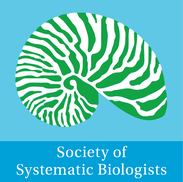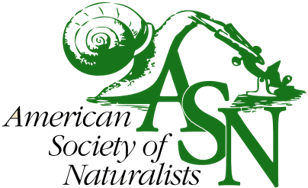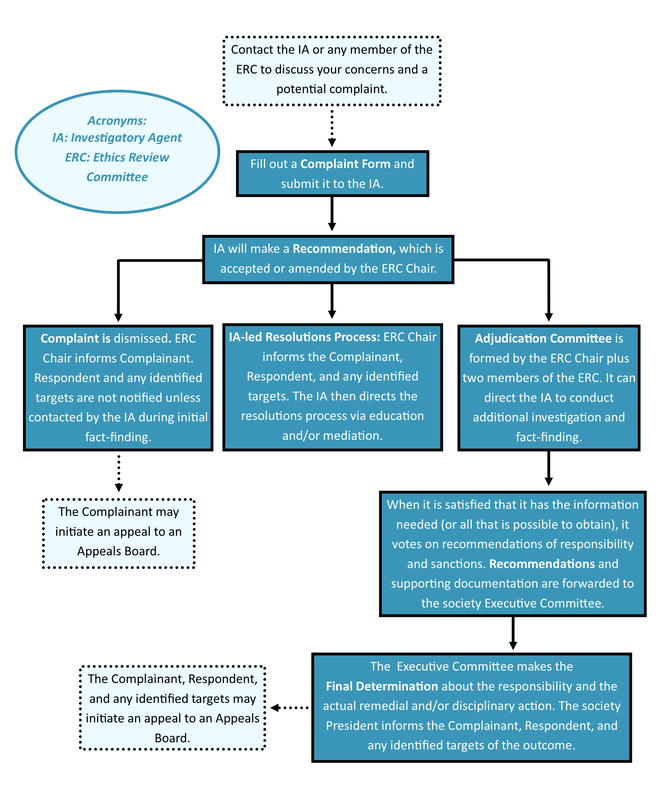1 Pager settings
- Code of Ethics
- Process
- FAQ
- Read the Enforcement Policies
- Complaint Form
- Make a Suggestion
- Give Feedback
- Complaint Form
- Section name
- Section name
- Section name
- Section name
- Section name
- Section name
- Section name
- Section name
- Section name
- Section name
- Section name
- Section name
- Section name
- Section name
- Section name
- Section name
- Section name
- Section name
- Section name
- Section name
- Section name
- Section name
Why Implement a Code of Ethics?
|
Scientific societies play a critical role in setting and upholding standards of excellence in the field.
To foster a vibrant society that is welcoming to everyone, standards of excellence must encompass:
For example, if a professor is fired for violating a university's policies on sexual harassment and sexual discrimination, should they be eligible to serve as editor of a society journal, considered for a society award, or as a candidate for president of the society? What information will be used in making this determination, what will the process be, and who has the authority to make a decision? Having clear standards and procedures in place that have been vetted by lawyers provides societies with a transparent and fair process for addressing these real world examples of misconduct. This Code of Ethics makes explicit our shared standards of professional ethics and establishes a transparent process for upholding them. After reviewing numerous existing societal codes of ethics, drawing on resources and templates outlining best practices from the AAAS Societies Consortium on Sexual Harassment in STEMM, and going through several rounds of expert legal review, a joint-society committee has created a robust system that is transparent in its process, removes conflicts of interest in its implementation, and will result in appropriate sanctions when needed. An enforcement process for severe breaches of conduct, that includes sanctions and legal protections for those involved in the process of upholding the Code of Ethics, is critical for providing accountability. There are also provisions for less formal means of resolution that focus on community building, education, and restorative actions. This Code of Ethics dovetails with the already implemented Code of Conduct for Evolution meetings to provide a means of addressing ethical conduct in professional settings outside of the society-sponsored annual meeting. We believe that this Code of Ethics is one step towards making sure that everyone:
|
After review and comments by the membership in 2022, the Code of Ethics Joint Committee has revised the Code of Ethics and its Enforcement Policy. SSE members voted to adopt the SSE Code of Ethics in 2023. It will go into effect January 1, 2024. ASN and SSB are now conducting votes of their membership to formally adopt their policies.
Code of Ethics (SSE)
|
Membership in the Society for the Study of Evolution (SSE) is a privilege open to all who want to contribute to the study of evolutionary biology. Members are expected to behave in a manner that is consistent with SSE’s values and goals. As such, members are expected to adhere to SSE’s Code of Ethics:
1. In interactions with research and professional communities
All members of Society for the Study of Evolution, as a condition of membership, agree to abide by the SSE Code of Ethics. |
Code of Ethics (SSB)
|
1. In interactions with research and professional communities
Members of the SSB have the right to criticize their colleagues, but they endeavor to do so without personal animus and without seeking to intimidate or coerce. Freedom of expression is crucial to the community of scientific practice, but such expression should not be used to bully or demean others. |
Code of Ethics (ASN)
|
1. Interactions with research and professional communities
2. Interactions with governments, institutions, and researchers
3. Interactions with the public
Members of the ASN have the right to criticize their colleagues, but they endeavor to do so without personal animus and without seeking to intimidate or coerce. Freedom of expression is crucial to the community of scientific practice, but such expression should not be used to bully or demean others. |
Frequently Asked Questions
Scope
To whom does the Code of Ethics apply?
The code applies to all members of the societies, and all individuals who participate in society-sponsored activities or provide services to the societies. These include elected and appointed leaders and committee members; nominees for, and holders of, honors and awards; and editorial boards of society journals and authors who publish in society journals. The Code of Conduct governs society-sponsored meetings. Anyone who engages in activities sponsored by the society, or joins the society, opts in to the Code of Ethics.
Can a complaint be filed against someone who is not a member of the societies?
Each society’s Ethics Review Committee has discretion whether to accept complaints against non-members of the society who were members at the time of the alleged unethical conduct or whose membership, role, or relationship with the societies has recently lapsed, as well as individuals who participate in society-sponsored activities or provide services to the societies.
Can a complaint be filed about someone’s personal conduct?
Violent, illegal, or otherwise unethical misconduct in personal affairs can be considered if it casts serious doubt on one’s ability to uphold professional ethical standards. However, legal conduct in an individual’s intimate personal relationships does not violate the code so long as the conduct is not undertaken in a society or other professional activity or role.
Should a complaint relating to publication ethics be directed to the journal or this COE?
Complaints relating to publication ethics should be directed to the journal. Society journals are members of the Committee on Publication Ethics. The editor of a society-owned journal may initiate a complaint by referring the matter to the Investigatory Agent when there has been a determination of a violation of publication ethics.
Does the Code of Ethics obligate me to report something?
Reporting is strongly encouraged when an observer is in a position to do so in a manner they believe is safe for them. However, failure to report an incident does not constitute a breach of the Code of Ethics.
Can the society use results from investigations conducted by other entities?
The Ethics Review Committee and Executive Committee may use information gathered by other entities when it is available. However, all determinations are solely at the discretion of the society.
What if someone makes an intentionally false accusation?
Intentionally false, malicious, or groundless complaints violate the Code of Ethics and could result in sanctions.
Should complaints related to society journals be submitted here or to the journal publisher?
COPE guidelines cover society journals, and the Code of Ethics will apply to anything beyond the scope of COPE. Complaints under the Code of Ethics could also affect society activities unrelated to the society journals, even if the complaint was related to the journal.
Why does each society have a separate Code of Ethics?
Legally, the societies are separate entities from one another. Therefore each society has its own Code of Ethics and any complaints submitted to more than one society will be evaluated independently.
Roles
Who is on the Ethics Review Committee?
The Ethics Review Committee for SSE is chaired by the Past President and includes eight other SSE members who are appointed by the President-Elect, with the approval of elected Council. The Ethics Review Committee for SSB is chaired by the Past-President and includes eight other SSB members who are appointed by the President-Elect, with the approval of elected Council. The ASN Ethics Review Committee is chaired by the Past-President of ASN’s Executive Council and includes four other ASN members. Once formed, the committee for SSE will be able to be viewed here, the committee for SSB will be able to be found here, and the committee for ASN will be able to be viewed here.
Who is on an Adjudication Committee?
An Adjudication Committee is composed of the Chair and two other members of the Ethics Review Committee. The Chair selects two members, in consultation with the Investigatory Agent to avoid conflicts of interest.
Who is the Investigatory Agent?
The Investigatory Agent will be an independent entity contracted by the Societies to assist in the fulfillment of the CoE, similar to the independent safety officers who carry out the Code of Conduct at the annual Evolution meetings.
What is the role of the Investigatory Agent?
The role of the Investigatory Agent is to receive complaints, perform initial reviews and investigations regarding whether the claim is credible, forward an initial recommendation (with supporting rationales) to the Ethics Review Committee as to how a complaint should be handled, conduct IA-led resolutions, and conduct further investigations as directed by an adjudication committee. Once an adjudication committee is formed, all final decisions rest with the societies’ elected leaders.
What happens if the Ethics Review Committee disagrees with the recommendation of the Investigatory Agent?
If the IA recommends dismissal, but the Ethics Review Committee disagrees with the recommendation, it will ask the IA to form an Adjudication Committee or conduct an IA-led resolution process.
If the IA recommends adjudication, but the Ethics Review Committee unanimously disagrees, the complaint will be dismissed or the Ethics Review Committee will direct the IA to lead a resolutions process. The Ethics Review Committee may also rely on a determination made by an outside authority rather than directing the IA to conduct an investigation.
If the IA recommends adjudication, but the Ethics Review Committee unanimously disagrees, the complaint will be dismissed or the Ethics Review Committee will direct the IA to lead a resolutions process. The Ethics Review Committee may also rely on a determination made by an outside authority rather than directing the IA to conduct an investigation.
Confidentiality
Can I file an anonymous complaint?
Yes, but if insufficient information is provided in or attached to the complaint to enable an investigation, it may be dismissed by the Investigatory Agent.
Can I file a verbal complaint?
Complaints must be submitted using the official complaint form. However, you may reach out to the Investigatory Agent, a member of the Ethics Review Committee, or any member of the society Governing Council to discuss a conduct concern prior to submitting a complaint.
If I file a complaint, will my name be made known to the person I accuse?
The societies seek to maintain confidentiality of the substance and process for resolving Complaints and conduct concerns. Except as specified in Section VII (confidentiality exceptions), the names and identities of complainants, identified targets if other than the complainant, respondents, and any other key persons shall be kept confidential. However, confidentiality does not ensure anonymity. The Chair or President may notify the respondent about a complaint or concern and their ability to respond, a determination, the right to appeal, and the determination of an appeal.
How will confidentiality be protected?
All records related to the complaint, investigation, and adjudication will be maintained by the Investigatory Agent (IA) in a secure, confidential format. The IA may provide confidential information to others involved in any capacity in an investigation or review of a complaint or conduct concern (for example, members of an adjudication committee), but in doing so the IA will remind those who receive the information of their confidentiality obligation.
Who will be notified of the outcome of an investigation?
After the Executive Committee has made a final determination, the society President will inform the complainant, any identified targets of the unethical conduct who are not the complainant, and the respondent of the decision and any actions to be imposed. The society President may also notify the home institution of a respondent.
Nominations, including self-nominations, for society awards and prizes will include a requirement to disclose whether or not the nominee has been the subject of an investigation or violation of the Code of Ethics. If a nominee indicates that they have been the subject of an investigation or violation of the Code of Ethics, the award committee will discuss the matter with the Investigatory Agent and make a judgment as to whether to consider the nominee for the award.
A confidential archive of complaints will be maintained for the Ethics Review Committee, in the same way as for the Evolution meeting Code of Conduct.
Nominations, including self-nominations, for society awards and prizes will include a requirement to disclose whether or not the nominee has been the subject of an investigation or violation of the Code of Ethics. If a nominee indicates that they have been the subject of an investigation or violation of the Code of Ethics, the award committee will discuss the matter with the Investigatory Agent and make a judgment as to whether to consider the nominee for the award.
A confidential archive of complaints will be maintained for the Ethics Review Committee, in the same way as for the Evolution meeting Code of Conduct.
Process
What happens after I file a complaint?
A graphical overview of the process for receiving complaints is viewable above. The complaint form is received by the Investigatory Agent (IA), who will conduct a preliminary review to determine whether to recommend to the Ethics Review Committee Chair that the complaint should be addressed in an IA-led process, dismissed without notifying the Respondent, or referred to an adjudication committee.
What would lead to a complaint being immediately dismissed?
Complaints may be dismissed if (1) the complaint form is incomplete, (2) the complaint is patently frivolous or otherwise without merit, (3) there is insufficient information provided with the complaint to enable an investigation, or (4) if the complaint is directed against an individual who is not covered by the Code of Ethics or concerns an issue that is not within the scope of the Code of Ethics.
How will it be decided if a complaint is handled informally (directly by the IA) or formally (via an adjudication committee)?
The goals of an IA-led process are education, community-building, repair of relationships, and restoration of inclusion, rather than punishment. Appendix B outlines the criteria for an IA-led process, which include considerations about the nature and severity of the conduct concern, lack of a pattern of ongoing recurrence, a commitment to avoid repetition, and both the accused and any identified targets agreeing that it is unnecessary to determine via adjudication whether the Code of Ethics has been violated.
Outcomes
What sanctions might result from a determination?
Examples of disciplinary and remedial actions are outlined in Section VI. These include mediation, private reprimand, public or private apology, notification of home institution, denial of society membership privileges, suspension of publication rights, denial of editorial activities, revocation of honors and awards, removal from office or nomination, and termination of membership.
Can sanctions be imposed before an outcome is determined?
Yes, Appendix C outlines when and how short-term actions can be taken if there are serious concerns about safety or disruption of society activities.
Can I appeal an outcome?
Yes. A respondent, complainant, or identified target of unethical conduct may appeal the decision and any sanctions imposed under certain circumstances. Appeals will be considered by an Appeal Board, consisting of three people appointed by the society president from the society council.
Timelines
Could something that happened a long time ago be the subject of a complaint?
There is no time limit on conduct that could be the subject of a complaint.
How long does this process take?
This will depend on the details of the complaint, including the length of time it takes for the Investigatory Agent to conduct investigations and whether an adjudication committee is convened. Two key points have a 30-day response period (with allowance for exceptions): for the respondent to reply to the Investigatory Agent, and for any involved party to submit an appeal.
Complaint Form
Click "Download File" below to preview the complaint submission form as a Word document. This form is for members of all three societies.
| |||||||






